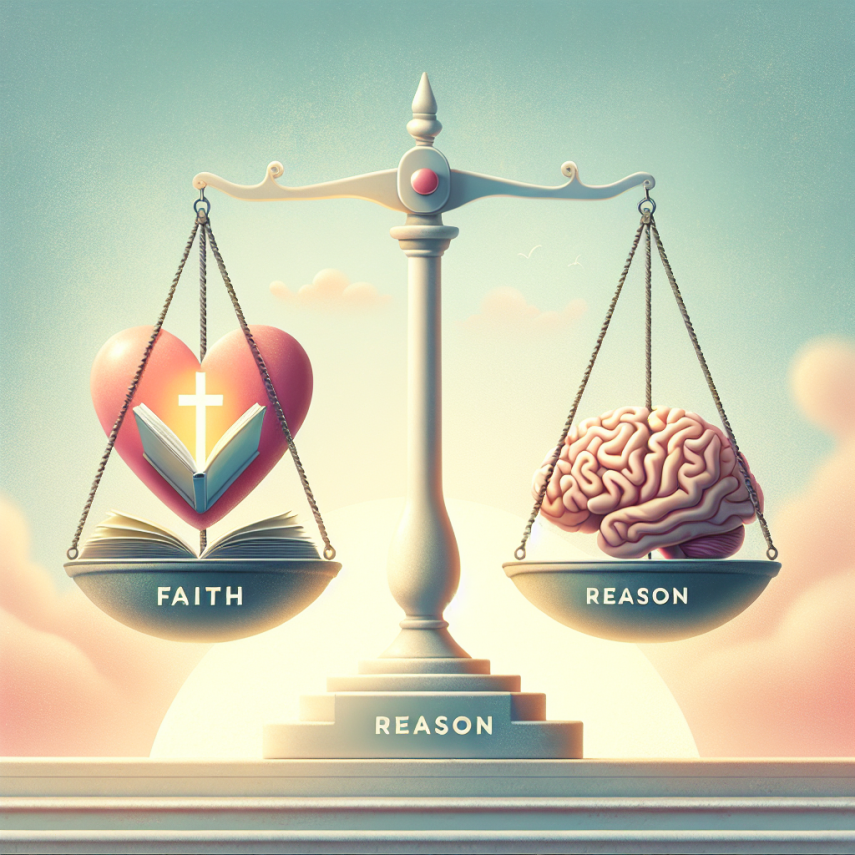The Enduring Bond Between Faith and Reason
Throughout history, faith and reason have often been framed as contradictory forces—one grounded in belief and divine revelation, the other in logic and empirical evidence. However, a deeper exploration reveals that these two facets of human understanding are not at odds but rather work together to provide a fuller picture of truth. Faith seeks to understand beyond the limits of human perception, while reason serves as a tool to interpret and engage with that understanding on a rational level. Together, they form a harmonious path that has guided theologians, philosophers, and believers in their pursuit of the ultimate truth.
Faith and Reason: Complementary, Not Conflicting
Many intellectual traditions assert that faith encourages individuals to seek deeper truths that reason alone may not fully comprehend. In turn, reason helps articulate and affirm faith through structured thought and logical inquiry. Key religious figures, such as St. Thomas Aquinas, have argued that faith and reason work in tandem; faith informs reason with divine insight, and reason articulates faith through logical discourse.
This relationship is evident in many religious traditions that establish core beliefs not only through spiritual encounters but also through philosophical reasoning. For example, Christianity has long maintained that faith in God is not meant to be blind but is supported by evidence and rational discourse (1 Peter 3:15). A faith that is disconnected from reason can become misguided, while a reason devoid of faith risks becoming cynical and reductionist.
Image: [1,Faith and reason working together concept]
The Role of Faith and Reason in Everyday Life
Bridging faith and reason is not just an intellectual exercise but a deeply pragmatic approach to life. In a world dominated by scientific discoveries and rapidly evolving technologies, some may argue that faith has lost its place in public discourse. However, faith continues to provide meaning in moments where logic alone fails. Questions about morality, human purpose, and the afterlife do not have empirical answers, yet they remain central to human existence. It is in these spaces that faith offers wisdom, while reason helps to interpret and apply it effectively.
Scientific advancements frequently intersect with faith, challenging and enriching theological understandings. Albert Einstein, while not conventionally religious, recognized this interplay when he remarked, “Science without religion is lame, religion without science is blind.” The search for meaning and understanding requires both disciplines—real wisdom emerges from integrating both spiritual conviction and intellectual analysis.
Image: [2,Faith and science interaction example]
Strengthening Faith Through Reason
Engaging with reason does not weaken faith; rather, it strengthens it. Those who ask questions, seek evidence, and challenge their beliefs often develop a more mature and enduring faith. Doubt and questioning, when approached with an open heart and rational inquiry, can lead to deeper understanding.
Furthermore, history offers countless examples of individuals who have merged their faith and reason to contribute significantly to both science and philosophy. Figures like Isaac Newton, Blaise Pascal, and C.S. Lewis have demonstrated how faith-driven individuals can engage with critical thinking and still arrive at profound intellectual insights. Their contributions suggest that a robust faith does not evade reason but anchors itself in it.
Image: [3,Historical philosopher reflecting on faith and reason]
Conclusion
As explored in previous articles on this blog, faith and reason are not adversaries but allies in the pursuit of truth. Articles such as “Faith and Reason: A Harmonious Path to Truth” and “The Harmony of Faith and Reason: A Lifelong Journey Towards Truth” delve deeper into this relationship, emphasizing that faith offers knowledge beyond empirical data, while reason provides structure and depth.
In our contemporary world, where skepticism and belief often exist in tension, embracing the bond between faith and reason can lead to a more comprehensive understanding of truth. By integrating both, believers can navigate life’s biggest questions with both spiritual depth and intellectual rigor, paving the way for a faith that is both enlightened and enduring.




This article examines the timeless relationship between faith and reason, showing how they work together to enrich our intellectual and spiritual lives.
While I remain skeptical about religious faith, I appreciate the argument that reason and belief can coexist. How do we ensure faith-driven reasoning remains open to critical scrutiny?